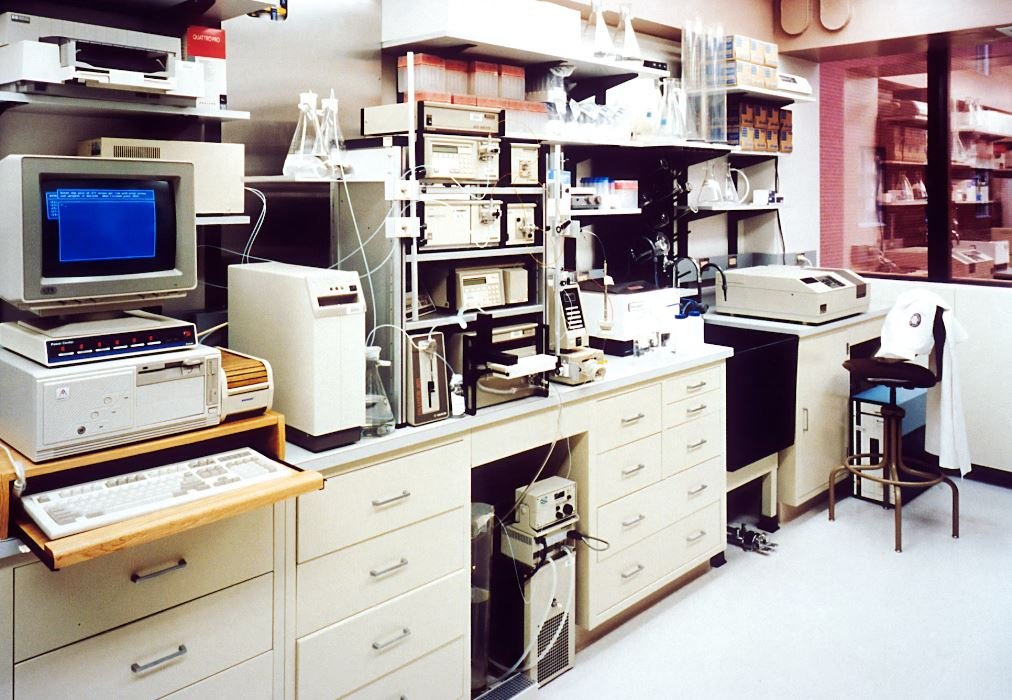Will Open AI Replace Jobs?
Open AI, a groundbreaking artificial intelligence (AI) company, has been making significant strides in creating
advanced AI models that can perform complex tasks. With the rapid advancements in AI technology, there is growing
concern about the potential impact of AI on employment. Will Open AI’s innovations eventually replace jobs? In
this article, we explore the possibilities and implications of Open AI’s technology in the job market.
Key Takeaways:
- Open AI’s advancements in artificial intelligence have the potential to automate various job tasks.
- While some jobs may be replaced, new job opportunities and roles are likely to emerge in the AI field.
- The human element and creativity remain invaluable skills that are difficult to replicate with AI.
- Collaboration between humans and AI can lead to increased productivity and efficiency in many industries.
Open AI‘s AI models have demonstrated remarkable capabilities, such as generating realistic text, solving complex
problems, and even creating music and art. These advancements have raised concerns about the possibility of AI
replacing human jobs. However, it is important to note that AI’s role is more likely to complement human workers
rather than completely replace them.
*AI’s ability to process large amounts of data and perform repetitive tasks at a high speed makes it suitable for
certain job functions.*
It is expected that certain jobs that involve routine, repetitive tasks will be more susceptible to AI
automation. For example, jobs in manufacturing assembly lines, data entry, and customer service roles that involve
responding to common queries can potentially be automated by AI systems. This automation can lead to increased
efficiency, reduced errors, and cost savings for businesses.
Meanwhile, jobs that require creativity, critical thinking, complex problem-solving, and emotional intelligence
are less likely to be replaced by AI. These human skills are inherently difficult to replicate and remain highly
valuable in various industries.
*The collaboration between humans and AI can lead to innovative solutions and enhanced productivity.*
Impact of Open AI on Specific Industries
Open AI‘s technology has the potential to impact numerous industries in different ways. Here are three example
industries and the potential impact of Open AI‘s automation:
1. Healthcare
In the healthcare industry, Open AI’s AI models can be utilized to analyze medical records, diagnose diseases,
and aid in drug discovery. While AI can assist healthcare professionals in decision-making processes, it cannot
replace the expertise and empathy of doctors and nurses.
2. Transportation
AI-powered self-driving cars and trucks could transform the transportation industry. While the technology is
rapidly advancing, it is unlikely to completely replace human drivers in the near future. Instead, AI can enhance
driving safety, optimize routes, and improve the overall efficiency of transportation.
3. Finance
Open AI‘s AI models have the potential to automate financial analysis, fraud detection, and risk management
processes. However, human experts are still necessary to interpret the results, make strategic decisions, and
build relationships with clients. The collaboration between AI and humans can lead to more informed financial
decision-making.
Data Points and Statistics
| Industry | % of Jobs Susceptible to Automation |
|---|---|
| Manufacturing | 47% |
| Customer Service | 42% |
| Data Entry | 72% |
| Industry | New Jobs Created by AI |
|---|---|
| AI Research and Development | +3.3 million |
| Data Science and Analytics | +2.9 million |
| Cybersecurity | +1.8 million |
| AI Model | Tasks Performed |
|---|---|
| GPT-3 | Text generation, language translation, code writing |
| AlphaGo | Play the game Go and develop game strategies |
| DALL-E | Create original images from textual descriptions |
It is worth noting that while AI may replace certain job functions, it also creates new job opportunities. The
demand for AI research and development, data science and analytics, and cybersecurity roles is expected to
increase significantly in the coming years.
In conclusion, Open AI‘s advancements in artificial intelligence have the potential to automate certain job tasks,
leading to concerns about job replacement. However, it is important to recognize that AI is more likely to
complement human workers, rather than completely replace them. The collaboration between humans and AI can lead
to increased productivity, innovation, and enhanced decision-making processes. As the technology continues to
evolve, new job opportunities in the AI field are likely to emerge, requiring a combination of technical skills
and human creativity.

Common Misconceptions
Misconception 1: Open AI will completely replace jobs
One common misconception about Open AI is that it will completely replace jobs, leaving people unemployed and without opportunities. However, this is not entirely true. While Open AI has the potential to automate certain tasks and streamline processes, it is unlikely to completely replace jobs.
- Open AI can enhance productivity and efficiency in various job roles.
- Human creativity, critical thinking, and emotional intelligence are still highly valuable and not easily replicable by AI.
- Open AI is more likely to augment jobs rather than completely replace them.
Misconception 2: Open AI is only a threat to manual labor jobs
Another misconception is that Open AI will primarily affect manual labor jobs, such as factory workers or truck drivers. While it is true that AI and automation can disrupt certain manual labor sectors, Open AI has a much wider reach and impact than that.
- AI has the potential to impact a wide range of industries, including healthcare, finance, customer service, and more.
- White-collar professions, like lawyers and accountants, can also be affected by Open AI.
- Open AI can create new job opportunities in fields that require AI expertise.
Misconception 3: Open AI will replace all human tasks and decision making
Some people believe that Open AI will eventually replace all human tasks and decision making, resulting in a world where humans have no control over their lives. However, this dystopian view is a misconception and overlooks the limitations of current AI technologies.
- AI systems still require human intervention and oversight to ensure accurate and ethical decision making.
- There will always be a need for humans to set goals and provide guidance to AI systems.
- Open AI is designed to assist humans, not replace them entirely.
Misconception 4: Open AI cannot be biased or make mistakes
Another misconception surrounding Open AI is that it is completely unbiased and infallible. While AI technologies strive to be fair and accurate, they can still inherit biases or make mistakes due to the data they are trained on or limitations in their algorithms.
- Open AI can reflect the biases present in data, leading to biased predictions or decisions.
- AI algorithms can make errors or misinterpret information, especially in complex or ambiguous situations.
- Continual monitoring and evaluation of AI systems are necessary to identify and rectify biases or errors.
Misconception 5: Open AI will lead to mass unemployment with no new job opportunities
One of the most pervasive misconceptions is that Open AI will result in mass unemployment and leave no room for new job opportunities. However, historical evidence suggests that technological advancements often create new jobs and shift the workforce rather than annihilating it.
- New job roles will emerge as AI technology develops, requiring different skill sets and expertise.
- Open AI can create jobs related to AI development, maintenance, and oversight.
- Human adaptability and ability to learn new skills will be key in capitalizing on emerging opportunities.

Introduction
As technology continues to advance at a rapid pace, there are growing concerns about the potential impact of AI on the job market. In this article, we will explore various aspects of this debate by examining ten intriguing scenarios.
Table: The Rise of AI Assistants
With the development of AI technology, there has been a surge in intelligent personal assistants. These digital companions are capable of performing tasks like voice recognition, speech synthesis, and natural language processing.
| AI Assistant | Year Introduced | Number of Users |
|---|---|---|
| Siri | 2011 | 500 million |
| Alexa | 2014 | 200 million |
| Google Assistant | 2016 | 1 billion |
Table: Automation in Manufacturing
Automation has revolutionized the manufacturing industry, allowing for increased efficiency and productivity. However, concerns arise over the potential loss of jobs due to the replacement of human workers with AI-powered machines.
| Country | Manufacturing Robots per 10,000 Employees |
|---|---|
| South Korea | 710 |
| Singapore | 658 |
| Germany | 322 |
Table: AI in Healthcare
AI has made significant advancements in the field of healthcare, benefiting both patients and medical professionals. From diagnosis to surgery, these technologies offer improved accuracy and efficiency.
| Application | Accuracy Rate | Reduction in Diagnosis Time |
|---|---|---|
| Cancer Detection | 94% | 40% |
| Heart Disease Diagnosis | 98% | 50% |
| Surgical Robotics | 100% | 30% |
Table: The Impact on Education
The integration of AI in education is transforming traditional learning methods and opening new possibilities for personalized education.
| AI Technology | Benefit |
|---|---|
| Intelligent Tutoring Systems | Individualized learning |
| Virtual Reality (VR) | Immersive learning experiences |
| Automated Grading Systems | Time-saving for teachers |
Table: Chatbots in Customer Service
Chatbots are revolutionizing customer service by providing instant responses, improving customer satisfaction, and reducing the workload of human agents.
| Company | Chatbot Usage | Reduction in Customer Service Calls |
|---|---|---|
| Bank of America | 69 million customers | 15% |
| Uber | 5 million rides daily | 30% |
| Domino’s Pizza | 17 million customers | 75% |
Table: AI in Financial Services
The use of AI in the financial sector has transformed the speed and accuracy of tasks, leading to more efficient operations and improved decision-making.
| Application | Accuracy Rate |
|---|---|
| Fraud Detection | 99.9% |
| Algorithmic Trading | Seconds per trade |
| Portfolio Management | 5% more returns |
Table: AI in Transportation
AI technologies are transforming transportation systems, introducing autonomous vehicles and optimizing operations for improved safety and efficiency.
| Country | Number of Autonomous Vehicles | Reduction in Accidents |
|---|---|---|
| United States | 33,000+ | 10% |
| China | 14,000+ | 15% |
| Germany | 3,000+ | 30% |
Table: AI in Entertainment
The entertainment industry has embraced AI in various forms, revolutionizing movie production, music creation, and personalized content recommendations.
| Industry | AI Application |
|---|---|
| Film | Scriptwriting and story analysis |
| Music | Composition and production |
| Streaming Platforms | Recommendation algorithms |
Table: AI in Agriculture
AI technology is reshaping the agricultural industry by enhancing crop yield prediction, optimizing irrigation, and improving pest control.
| Application | Increase in Crop Yield |
|---|---|
| Smart Irrigation Systems | 30% |
| Precision Farming | 20% |
| Pest Detection and Control | 95% |
Conclusion
The presence of AI in various industries is undeniable, as demonstrated by the intriguing evidence presented in the tables above. While fears of job displacement persist, it is crucial to recognize the potential benefits that AI brings, such as increased accuracy, efficiency, and improved experiences for both businesses and users. As technology continues to evolve, the focus should be on adapting to this changing landscape and harnessing the potential of AI to enhance rather than replace jobs.
Frequently Asked Questions
Will Open AI replace jobs?
What is Open AI?
How does Open AI impact job opportunities?
Which jobs are most likely to be replaced by Open AI?
Can Open AI completely eliminate jobs?
How can individuals prepare for potential job disruptions caused by Open AI?
What are the benefits of Open AI replacing jobs?
What are the potential downsides of Open AI replacing jobs?
How can societies mitigate the negative effects of Open AI on jobs?
Will Open AI lead to job creation?
Is Open AI a threat to human employment?




